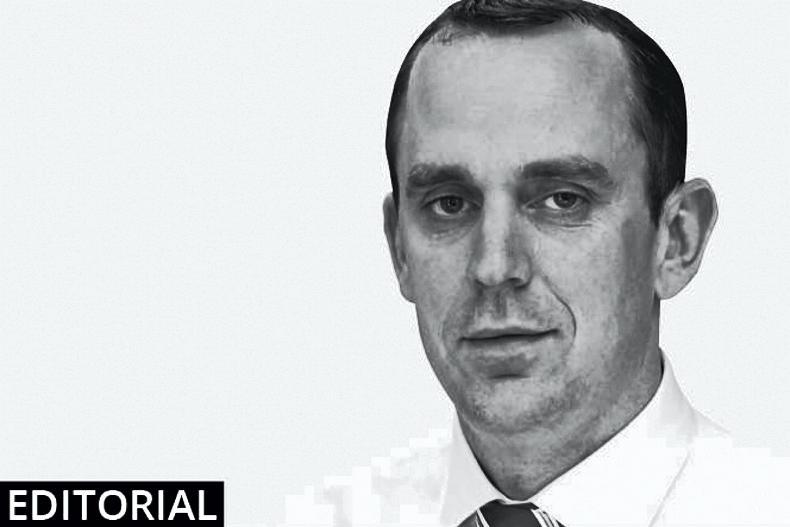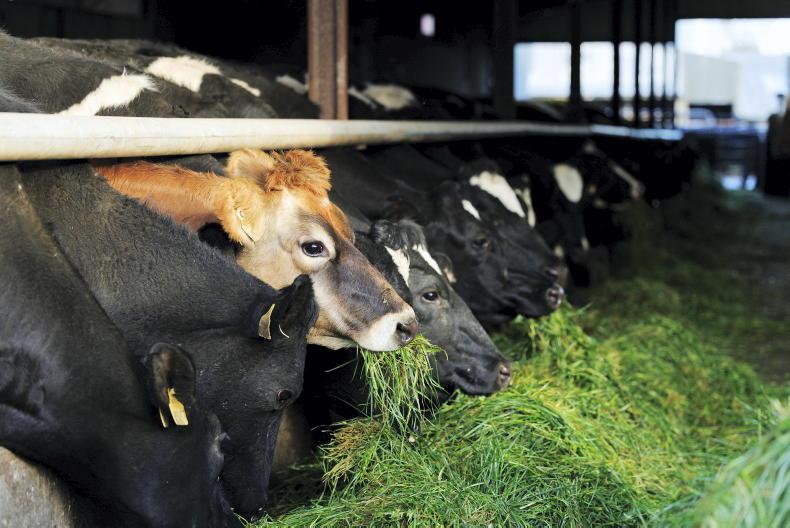On our letters pages this week, we carry a response from An Taisce to an article in last week’s paper that questioned conventional thinking on climate change. We welcome the detailed response, albeit that the NGO tends not to speak on the subject with the same level of caution as the Intergovernmental Panel on Climate Change (IPCC).
Given the serious economic consequences for the national economy and, indeed, our Irish livestock sector it is the aim of this paper to provide a platform for robust scientific debate on the subject, with the focus on ensuring policy is shaped by the latest scientific data.
A recent report published by the Irish Academy of Engineering estimated the cost to the Irish economy of complying with 2030 emission targets at €35bn. Worryingly, this figure does not take into account the financial impact on our livestock sector and the knock-on consequences for rural Ireland.
Therefore, given the high stakes at play, few can credibly argue against the need to ensure that all aspects of the debate are properly aired in advance of policy positions being adopted. Of course, the easy option for those with deeply formed opinions is to simply undermine the alternative view by discrediting the credibility of the messenger, rather than the message itself. However, governments and policy makers do not have the same luxury and have a responsibility to listen to and absorb all credible viewpoints when forming such a key policy position.
We also carry an article by Professor Ray Bates, adjunct professor of meteorology from the Meteorology and Climate Centre in the School of Mathematics and Statistics at UCD. His views, like those of Professor Lindzen outlined last week, once again question the conventional thinking on the subject.
Having been a NASA scientist and elected to membership of the Royal Irish Academy, Professor Bates has certainly earned the right to have his opinion heard and it is legitimate to expect that his views are fed into the debate in the same way as those with credible alternative views.
In the same way, it is legitimate to expect that such key policy decisions are based on the most up-to-date science. Again with credibility, Professor Bates argues that scientific developments that have taken place since the latest IPCC report in 2013 should be taken into account.
From a farmer’s perspective, undoubtedly the most significant development since the 2013 IPCC report is the recent questioning of the role agriculture plays in climate change. There is certainly increased questioning of science that links methane produced by cattle and sheep and nitrous oxide associated with tillage operations to global warming.
Again, given the potential significance of such a claim on the livelihoods of our readers, we have a duty to ensure that this information is put centre-stage in the climate debate. It is not for this paper to endorse or dismiss this viewpoint – it is the responsibility of the scientific community to answer this question on the basis of the most current scientific evidence available. We simply cannot allow for these views to be ignored or merely dismissed.
Ultimately, what is clear is that many aspects of climate science are not settled. Governments and policy makers cannot ignore the credible bank of scientific evidence and viewpoints emerging that are challenging conventional thinking on this topic, including the role played by the agricultural sector. Given the significance of this debate to the Irish economy and Irish farmers, we will continue to provide a platform for all credible viewpoints – from either side of the debate.
Meanwhile, Colm McCarthy looks at the debate through an economic lens and suggests that any environmental levy should be charged at point of consumption, rather than production. Such a move would clearly benefit Ireland’s carbon-efficient food production model and, from a global perspective, prevent carbon leakage. It clearly makes sense, regardless of where you sit in the debate, to encourage carbon-efficient production models to produce more, in order to displace production from less carbon-efficient systems. The discussion on which point in the production chain any environmental levy should be charged highlights the fact that the current model, which calculates Ireland’s emissions on the basis of energy imported for domestic consumption and food produced for export, is double counting and flawed.














SHARING OPTIONS